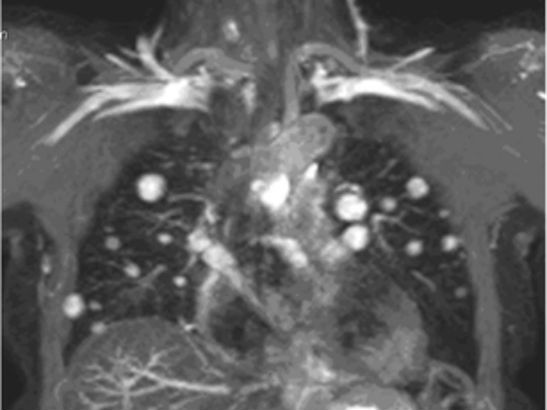 A UK research partnership will purchase one of the world’s most advanced radiotherapy machines and develop state-of-the-art treatments for patients after the award of a £9.6 million grant.
A UK research partnership will purchase one of the world’s most advanced radiotherapy machines and develop state-of-the-art treatments for patients after the award of a £9.6 million grant.
The Institute of Cancer Research, London, and The Royal Marsden NHS Foundation Trust will become the first institutions in the UK – among a select group of international medical centres – to own and develop the world-leading MR Linac technology.
The award was announced today (Thursday) by Chancellor of the Exchequer George Osborne as part of more than £230m in new investment to UK science from the Medical Research Council. The application for the grant was a joint effort between the UK research partnership and Elekta, developer of the groundbreaking radiotherapy system. Philips is the magnetic resonance imaging (MRI) technology provider.
The MR Linac combines two technologies – an MRI scanner and a linear accelerator – to precisely locate tumours, tailor the shape of X-ray beams in real time, and accurately deliver doses of radiation even to moving tumours. The award will enable UK researchers and clinicians to be among the world’s first to offer this pioneering form of radiotherapy to patients.
Once fully developed for the clinic, the MR Linac system will enable more accurate targeting of tumours immediately before and during treatment – particularly of those that move, such as prostate, lung and breast cancers. This will allow doctors to increase the radiation dose delivered directly to a tumour, and reduce side-effects by delivering a lower dose to surrounding tissues.
The £9.6m award will purchase the MR Linac system and finance its installation in a new facility at The Royal Marsden. Scientists at The Institute of Cancer Research (ICR) will develop the technology in a preclinical phase of research before clinicians at both organisations aim to begin treating the first patients in around three years’ time – initially through clinical trials at the new facility.
Combining the two technologies is a major challenge for physicists because X-ray radiation treatment is affected by the strong magnetic fields used during MRI.
Professor Paul Workman, Interim Chief Executive of The Institute of Cancer Research, London, said:
“Standard radiotherapy technologies usually require scans to be taken in advance of treatment, and are not able to account precisely for the movement of a tumour after scanning or during the course of treatment. The MR Linac aims to address this challenge by imaging tumours in real time during radiotherapy, and we are delighted to be one of the few centres worldwide to have access to this state-of-the-art technology.
“This pioneering programme of research will bring together scientists, clinicians and industry partners to develop an advanced form of radiotherapy that could meet vital areas of unmet need in cancer treatment – including in prostate, lung and breast cancer. At the ICR, a team of physicists and clinicians will take a leading role in enhancing the performance of the technology before its routine use in patients.”
Professor David Cunningham, Director of Clinical Research at The Royal Marsden, said: "We are delighted to receive this £10 million grant which will enable us to continue to be at the forefront of pioneering radiotherapy techniques. We are continually developing new and state-of-the-art treatments for our patients and as one of the world's most advanced radiotherapy machines, the MR Linac has the potential to directly benefit not only Royal Marsden patients but patients right across the NHS and beyond."
